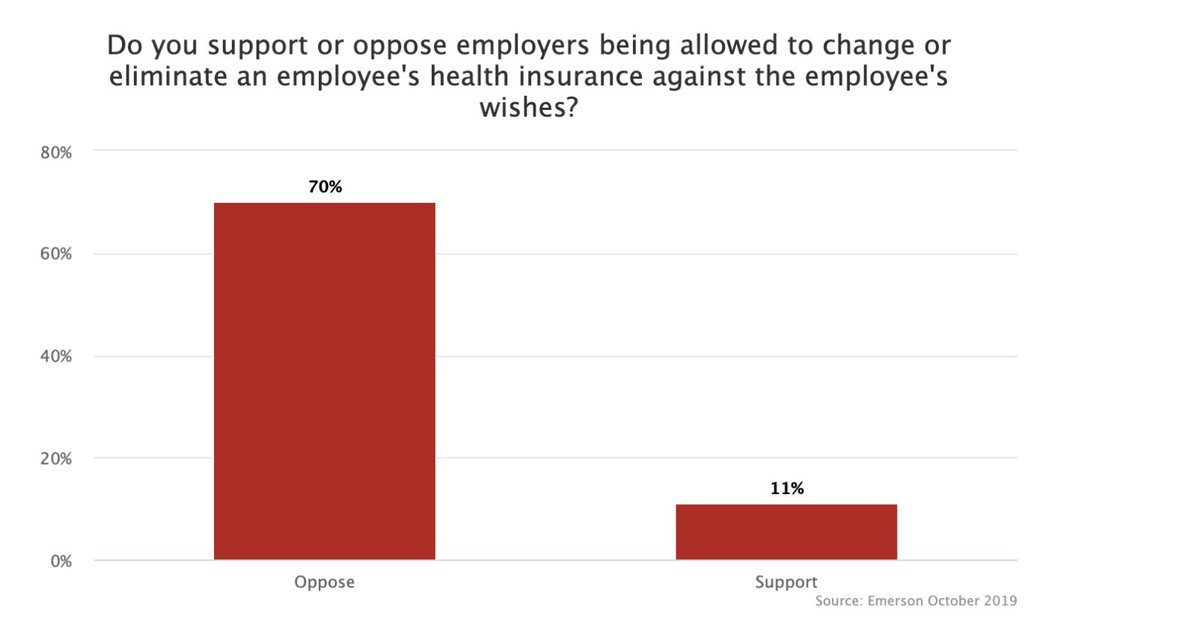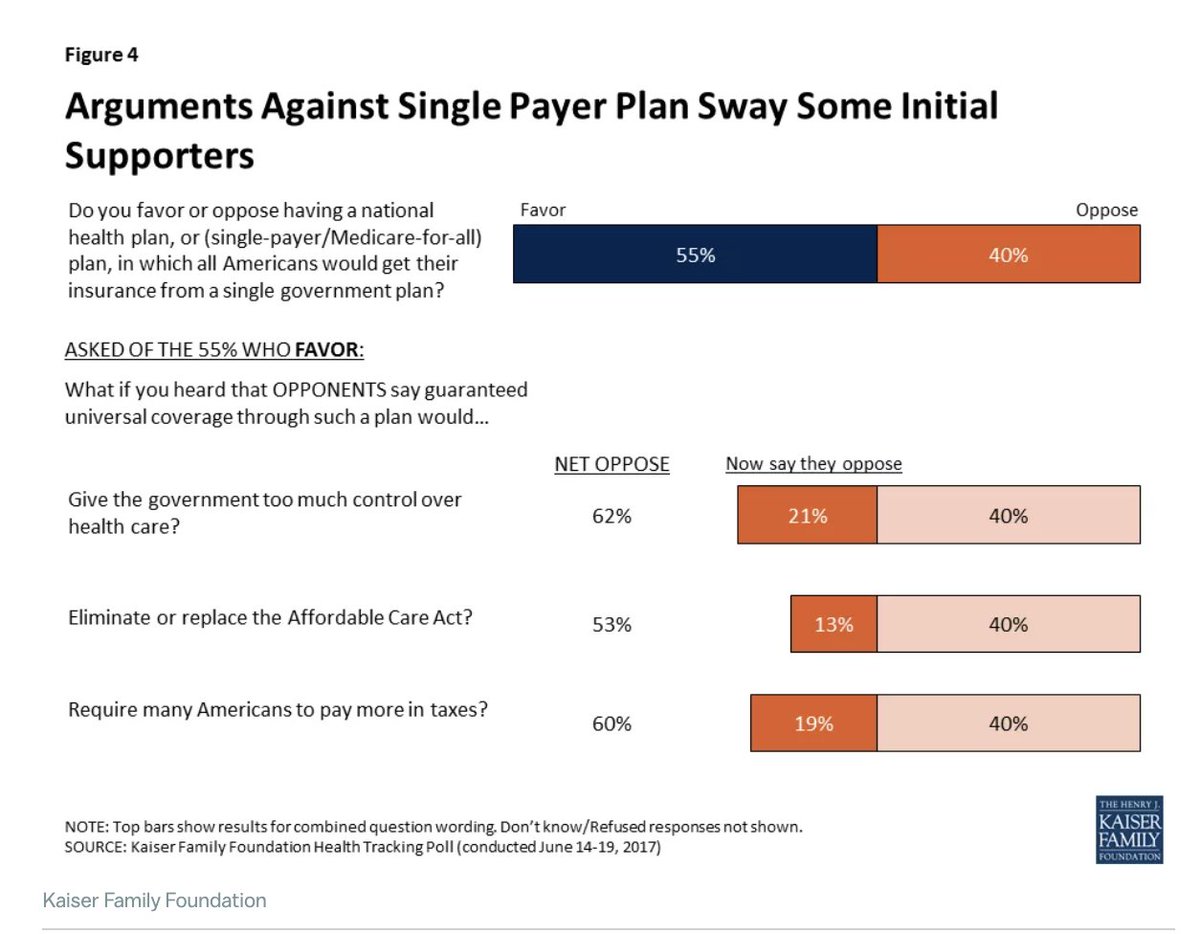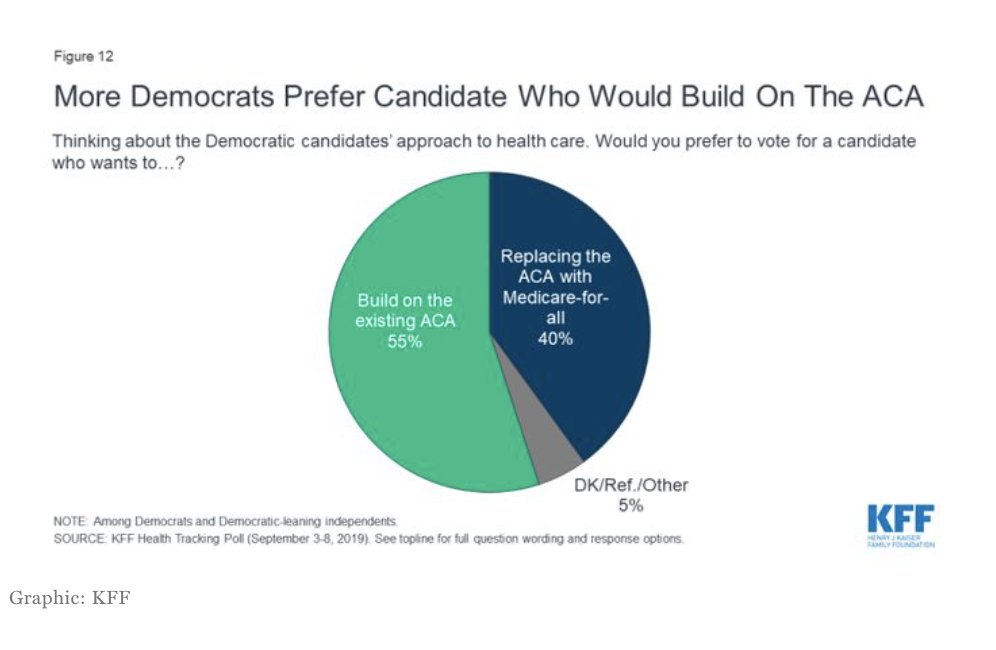(1/) There's one argument in this piece that I think I could have made a bit clearer: Policy polling can be used to gauge the democratic legitimacy of a given proposal, *or* to anticipate how voters might behave if a given proposal achieved high salience.. https://nymag.com/intelligencer/2020/12/jimmy-dore-aoc-medicare-for-all-strategy.html
(2/) M4A tends to lose support in polls that mention its implications for taxes/private insurance. Progressives are right to argue that this fact does not tell us much about the policy’s democratic legitimacy...
(3/) It’s impossible to know what voters truly want if they aren’t also alerted to M4A’s implications for their overall household finances and coverage stability etc. As @MattBruenig notes, employer-provided insurance becomes very unpopular when its downsides are highlighted
(4/) But if you want to gauge how durable support for M4A is likely to be when the health-care industry groups start blanketing the airwaves with anti-tax agit-prop, then what voters would prefer in conditions of perfect information is immaterial. And this data becomes relevant:
(5/) Similarly, this poll likely says more about Democratic voters’ reflexive deference to Obama than their considered policy preferences. But if we want to gauge whether Dem voters would be outraged to learn their moderate reps oppose M4A, this survey is one relevant data point
(6/) This doesn’t mean that leftists can’t radicalize the Dems’ (increasingly millennial) base on M4A, or that the long-term political benefits of taking on the health-care system's incumbents wouldn’t outweigh any short-term risk for the Democratic Party...
(7/7) But it does mean that progressives are playing a weaker hand than Dore and Gray suggest, in my opinion.

 Read on Twitter
Read on Twitter




